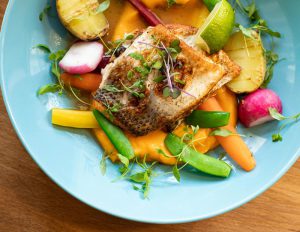
You’ve heard of probiotics and prebiotics, and may already be taking them. Have you heard of psychobiotics? These bacteria that may have a mental health benefit when ingested should be of interest for those in the spas and wellness sector with any focus on mental health and wellness.
“No area of psychiatry is as hot today…”
The idea that the trillions of bacteria in our guts (a.k.a. our gut microbiota) could have a drastic affect on our mental health is not a new one, but until recently it was still considered somewhat fringe. Now it’s gaining in popularity and credibility with a growing body of research, though more is still required for the scientific community to come to any kind of consensus. Canada’s National Post recently stated “No area of psychiatry is as hot, or controversial today as the idea of manipulating the gut to alter the mind.”
The Post article also states that gastro-intestinal problems are common in people with anxiety and depression. And it has been demonstrated that certain probiotics are associated with improved mood. This is where psychobiotics come in.
Gut problems can lead to anguish, psychosis and anxiety
One proponent of the gut-brain connection and psychobiotics is Scott Anderson, co author of the The Psychobiotic Revolution: Mood, Food, and the New Science of the Gut-Brain Connection, with Ted Dinan and Jon Cryan of the APC Microbiome Institute at University College Cork. While allowing that not every mental health issue is gut related, Anderson stated in a recent Psychology Today article that many of our mental issues start in the gut and that “we’ve known for centuries that gut problems can lead to mental anguish, psychosis, and anxiety.”
Anderson calls these microbes “the royal guards of immunity,” stating that they fight and destroy pathogens before those pathogens can make it to the immune system. However, he writes, “if you don’t feed your guardian microbes properly, they won’t be able to mount an effective counterattack. If pathogens are able to gain a foothold, they can disturb the lining of your gut. That lining is one cell thick, a ridiculously thin barrier against troublemakers. Pathogens can burrow and dig into this lining, allowing toxins or bacteria to leak into your bloodstream. Your heart obligingly pumps those potential poisons to every organ in your body, including your brain.”
Areas of interest include fermented foods and fecal transplants
This area of study has led to heightened interest in pro and pre biotics, fermented foods, and fecal pills and transplants. The transplants, which involve transplanting feces from one body into another, have a near 100% success rate in curing antibiotic-resistant superbug Clostridium difficile and are currently being tested in people with depression and bipolar disorder by researchers at the University of Calgary. The hope, according to the National Post, is that enhancing good gut microbes may be a viable treatment for drugs resistant depression. This research, Valerie Taylor, chief of psychiatry at the University of Calgary, told the Post, may change our entire concept of mental illness. “We now think mental illness is essentially a brain illness, and it may be that it isn’t,” Taylor said.
The mechanism behind the connection isn’t clear, but Taylor told the Post that it’s possibly due to stress causing inflammation, which is connected to gut dysbiosis, which has been linked with altered brain function.
 Psychobiotic food pyramid
Psychobiotic food pyramid
In a more practical, day to day application, Scott Anderson has also developed a “psychobiotic food pyramid,” a new version of the famous diagrams published around the world as healthy eating guidelines, with foods one should be eating most on the bottom and least at the top.
Anderson’s pyramid prioritizes high fiber vegetables, whole grains, and nuts and olive oil. Fish and seafood and fermented foods should be consumed often, he says, followed by poultry, eggs and dairy. Sugar and red meat should be limited to once a week or less.
World’s first psychobiotic food supplement
Meanwhile, the “world’s first psychobiotic food supplement” recently went on the market in the UK.
While the scientific community appears to be cautiously excited about these new developments, we’ll likely be seeing an increase in attention to this area in spa and wellness.
Spa Executive magazine is published by Book4Time, the world’s most innovative spa, salon, wellness, and activity management software. Learn more at Book4Time.com.



